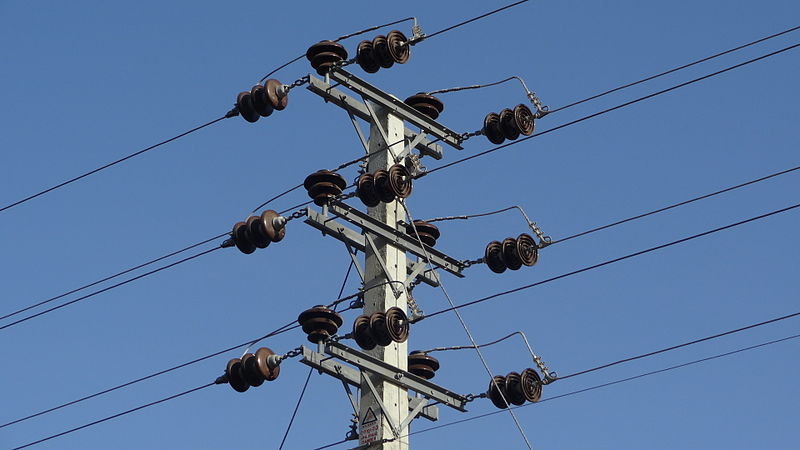
Rural electrification has never been more significant than in the last two years. When COVID-19 hit the country in 2020, people were confined to their homes and lives were upended into what was coined, the “new normal” – which basically meant everything, from health, work and education, became heavily-depended on electricity. Electric Cooperatives play a significant role in these times. They provide electricity to most of the country’s population, especially rural and developing areas and communities. More often than not, only one EC provides electricity per province, hence, consumers have very limited (or no) choice on their energy provider.
This monopoly of ECs causes a huge deal of grievance for most energy consumers in the provinces. Despite serving rural, and often most disadvantaged areas of the country, ECs have been proven to charge the most expensive electricity – overpriced, in fact, considering the lackluster service. Performance-wise, they are the most inefficient and unreliable, and have become the playground for local politicians and “milking cows” for corruption.
Per mandate, ECs are supposedly owned by the consumers, yet, one could not find any cooperative offering dividends to their members. Instead of buying equipment to improve services, they prioritize buying vehicles or redesigning their offices. Instead of rationalizing its workforce, they bloat their workforce as an accommodation for political favors instead of giving the best service to their consumers.
Electric Cooperatives have become so lucrative in money that there have been documented political fights, cases, and killings, all in the struggle for power and control.
Earlier this year, former National Electrification Administration (NEA) Administrator Edgardo Masongsong was dismissed after he was found to have solicited cooperatives for campaign funds for several party-list groups.
Meanwhile, consumers of the Misamis Occidental Electric Cooperative, Inc. (MOELCI) have long decried their mediocre service and the regular brownouts they experience almost daily – often due to unannounced maintenance work.
This prompted Anak Mindanao (AMIN) Partylist Representative Amilhilda Sangcopan to file House Resolution HR 1779, urging the Congress to investigate MOELCI on consumer complaints.
Similarly, the Palawan Electric Cooperative (PALECO) has also received numerous consumer complaints, for which Rep. Sangcopan also filed House Resolution 1766.
While last October 29, the Committee on Energy had conducted another hearing on HR 2206 authored by Representative Kiko Benitez, an inquiry into the increase in electricity rates of electric cooperatives in Negros and Iloilo.
During the hearing, the Committee had established that Central Negros Electric Cooperative (CENECO) violated existing laws and regulations when it decided to extend its two expired PSAs with generation companies (gencos) without complying with the competitive selection process (CSP). The Minority Leader said such a decision by CENECO was disadvantageous to its member-consumers as it might have contributed to the increase in the cost of electricity price in the province.
The gross incompetence of some ECs have finally prompted, even President Rodrigo Duterte, to issue a strong statement: “Ipagbili na ninyo!” (Sell the coops!), telling the cooperatives to sell themselves to bigger energy companies if they continue to fail meeting consumer demands.
What needs to happen
In theory, Electric Cooperatives are service-based and not profit-based, and in it lies its limitation to spend heavily on capital expenditure — necessary for once rural areas transitioning into urban or industrial areas.
Electric cooperatives are also often run by ex-politicians or inccompetent officials, driven by political ambition, who fail to prioritize service improvements, capital expenditure and skills upgrade.
While the national government has started the competitive selection process (CSP) regime and WESM, and all ECs are implementing the two issues, there are still concerns about the technical capability of electric cooperatives to properly plan their demand. Coops are often over-contracting, exposing consumers to pay useless over-capacity fees, which makes rates even more expensive.
During the Round Table Discussion held last October 20, Rep. Sangcopan reminded consumers: “Gusto ko pong ipaalala sa publiko na nasa kanila ang tunay na power”. (The public owns the true power), alluding to the fact that ECS are essentially owned by its member-consumers.
“You have in your hands the power to choose and vote for the members of the board who will in turn vote for the general manager. Vote for board members who will represent you and look after your own interest as consumers,” said Rep. Sangcopan.
Kuryente.Org believes that the House Committee on Energy and President Rodrigo Duterte should urgently look into the problems plaguing electric cooperatives across the country by consolidating all coop-related House Resolutions (e.g. HR 1779, HR 1766, HR 2206) and embark on a massive legislative investigation, and champion for better electric cooperatives across the country.
Coming into the end of his term, we hope President Duterte chooses to impart as his legacy in the energy sector the improvement of rural electrification, starting with the electric cooperatives.
Electricity has been recognized as an indispensable commodity thus we need to mobilize all efforts in pushing for a better and more reliable energy sector for all.
###
